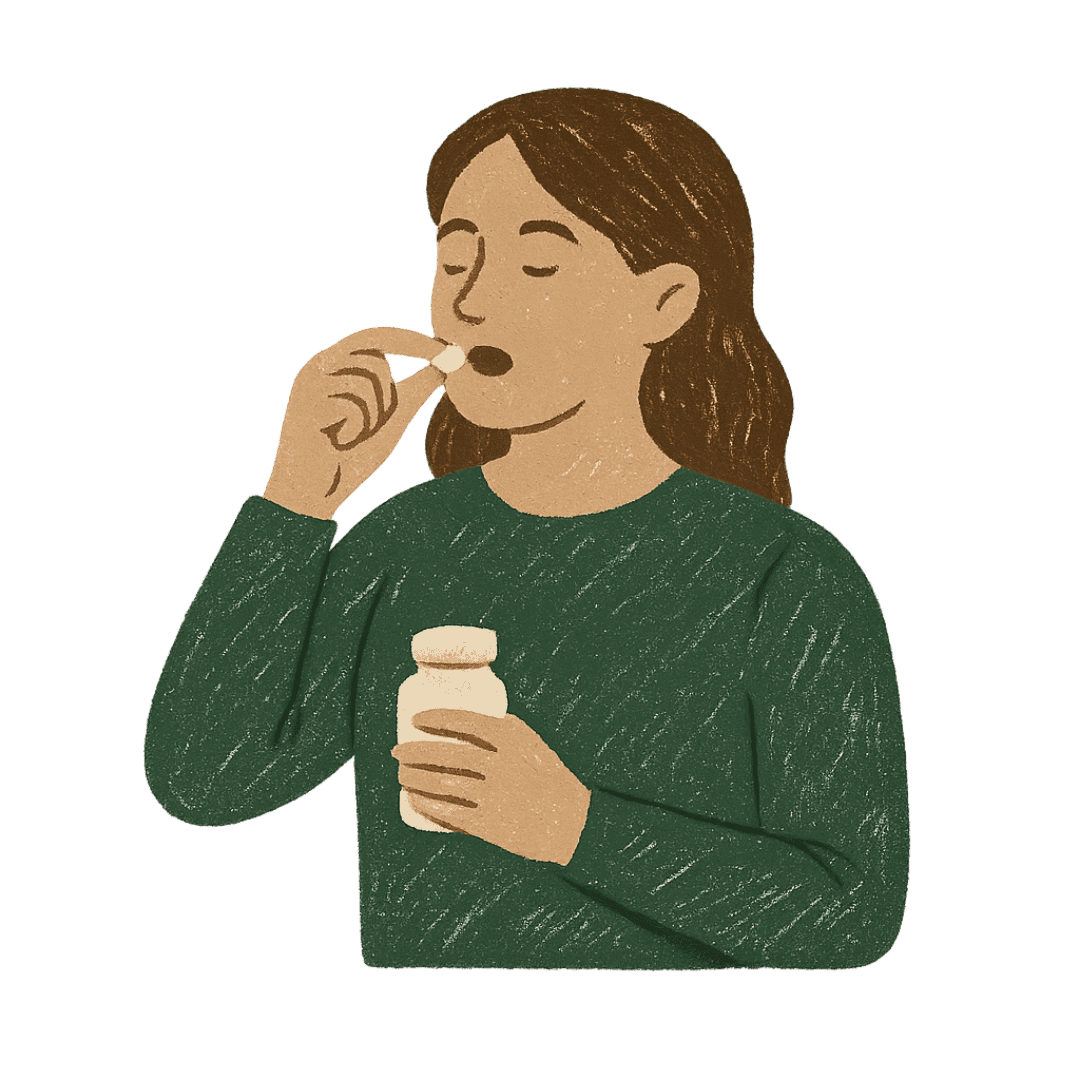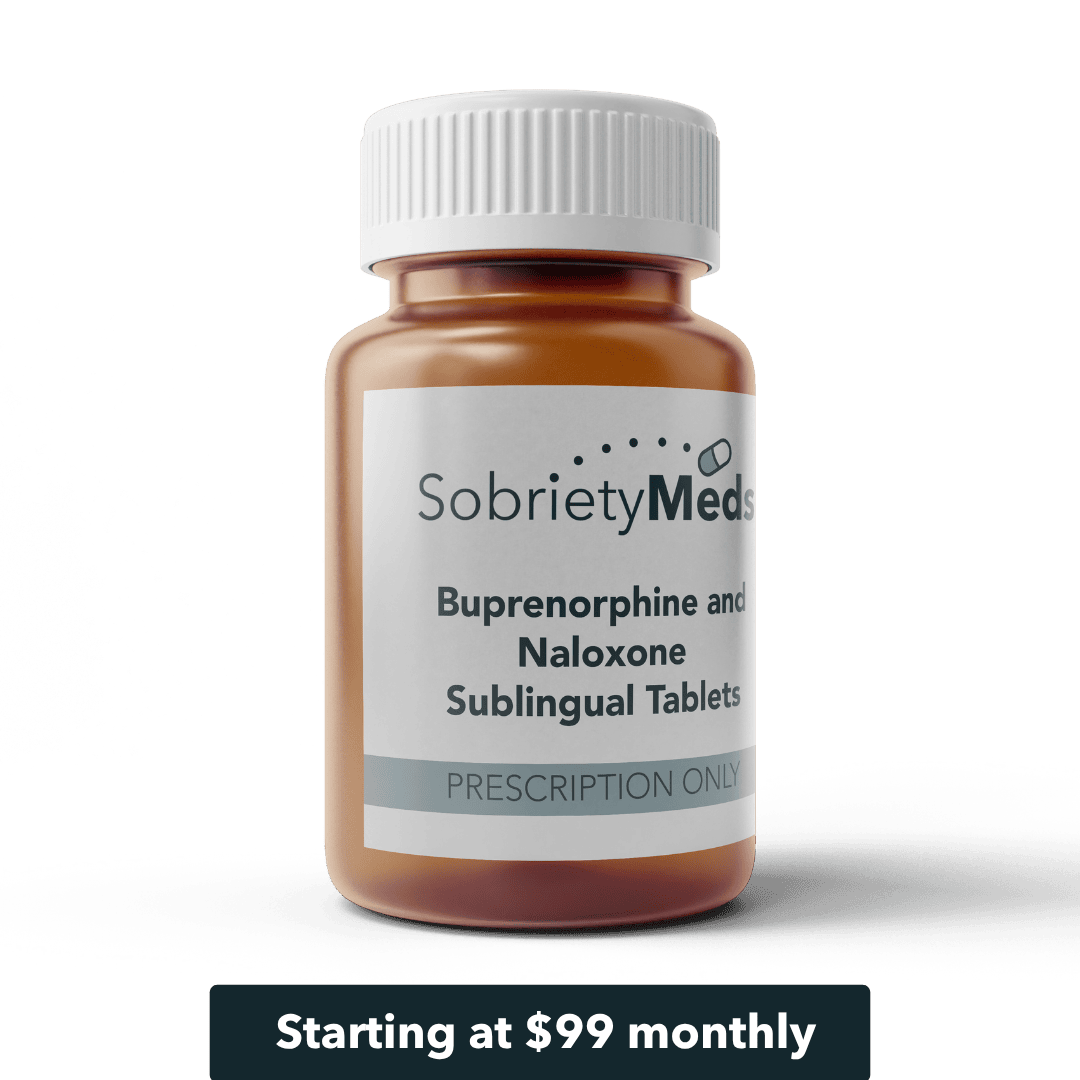
What is Suboxone and how does it work?
Suboxone is an FDA-approved medication used to treat opioid use disorder (OUD). It contains two medications: buprenorphine, which is a partial opioid agonist that helps reduce cravings and withdrawal symptoms, and naloxone, which helps deter misuse. Suboxone works by binding to the same receptors in the brain as other opioids, but it produces a weaker effect, helping to stabilize individuals and reduce the urge to use other opioids.
Is Suboxone right for me?
Suboxone is a prescription medication, and its suitability depends on your individual health history and specific needs. Our licensed healthcare providers will conduct a thorough online assessment, including your medical history and current opioid use, to determine if Suboxone is a safe and appropriate treatment option for you.
Is this confidential?
Yes. All services are HIPAA-compliant and fully confidential. Medications ship in discreet packaging.
Do you accept insurance?
No, but our prices are structured to be affordable and all-inclusive. You may submit a receipt to your provider independently.
Can I cancel at anytime?
Yes. You’re never locked into a contract. Cancel, pause, or modify your plan easily from your account dashboard.
How is Suboxone prescribed through telehealth?
Our telehealth service allows you to connect with a licensed healthcare provider from the comfort of your home. You'll complete an online assessment and then have a virtual consultation. If Suboxone is deemed appropriate, your prescription will be sent electronically to our partner pharmacy, which will then discreetly ship the medication directly to your home.
Do I need to be in withdrawal before starting Suboxone?
Yes, it is crucial that you are experiencing mild to moderate opioid withdrawal symptoms before taking your first dose of Suboxone. Starting Suboxone too soon after using a full opioid (like heroin or prescription painkillers) can trigger "precipitated withdrawal," which is a sudden and severe worsening of withdrawal symptoms. Your provider will guide you on when it is safe to start and may recommend a waiting period based on the type of opioid you've used.
What are the common side effects of Suboxone?
Common side effects can include nausea, vomiting, constipation, headache, sweating, difficulty sleeping, and numb mouth or tongue pain (if using the sublingual film/tablet). These side effects are usually mild and often decrease over time. It's important to discuss any side effects with your healthcare provider.
Are there any serious side effects or warnings?
Yes, while generally safe when used as prescribed, Suboxone can have serious side effects.
These include:
- Respiratory depression: Though less common than with full opioids, buprenorphine can cause slowed breathing, especially if combined with other central nervous system depressants (like benzodiazepines or alcohol).
- Adrenal insufficiency: A rare but serious condition.
- Liver problems: Though rare, Suboxone can cause liver issues in some individuals. Your provider may monitor your liver function.
- Accidental overdose/misuse: If taken by someone who is not opioid-dependent, or if combined with other depressants, there is a risk of serious harm or death.
- Physical dependence: Suboxone can cause physical dependence. If you decide to stop treatment, it must be done under the guidance of your healthcare provider to safely taper the dose and avoid withdrawal symptoms.
Always inform your healthcare provider about all medications you are taking and any pre-existing medical conditions.
These include:
- Respiratory depression: Though less common than with full opioids, buprenorphine can cause slowed breathing, especially if combined with other central nervous system depressants (like benzodiazepines or alcohol).
- Adrenal insufficiency: A rare but serious condition.
- Liver problems: Though rare, Suboxone can cause liver issues in some individuals. Your provider may monitor your liver function.
- Accidental overdose/misuse: If taken by someone who is not opioid-dependent, or if combined with other depressants, there is a risk of serious harm or death.
- Physical dependence: Suboxone can cause physical dependence. If you decide to stop treatment, it must be done under the guidance of your healthcare provider to safely taper the dose and avoid withdrawal symptoms.
Always inform your healthcare provider about all medications you are taking and any pre-existing medical conditions.







